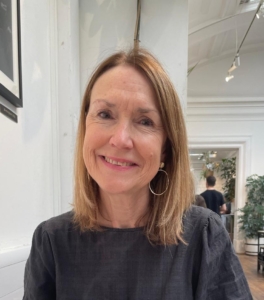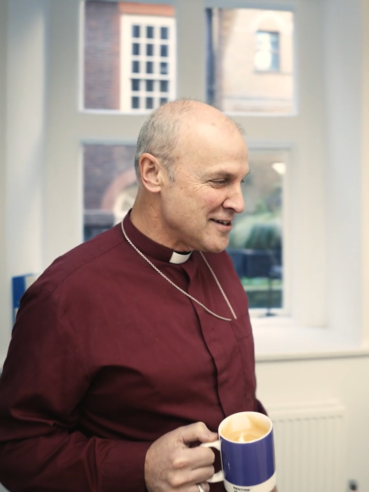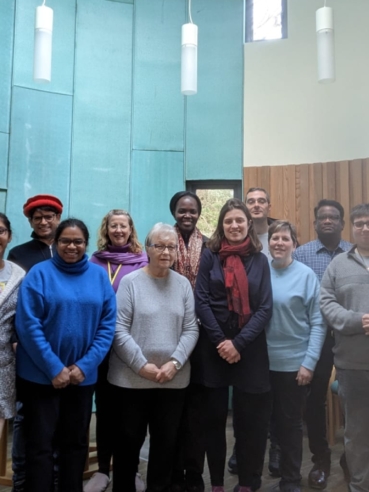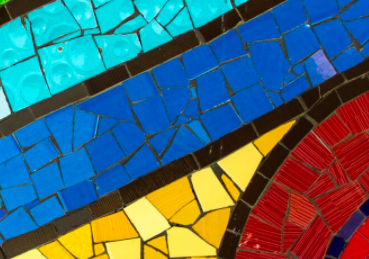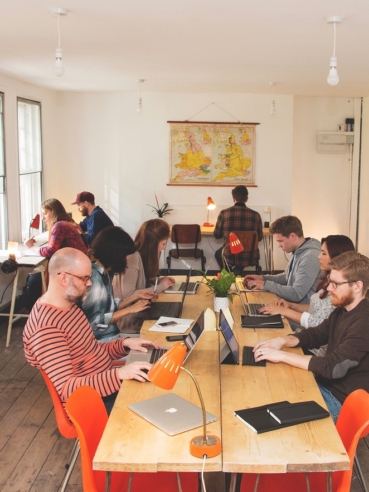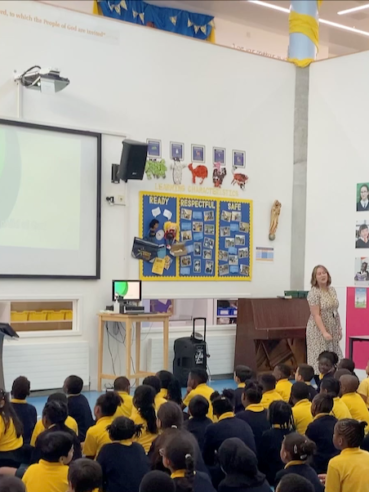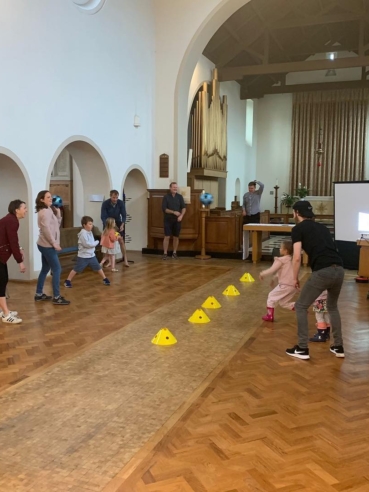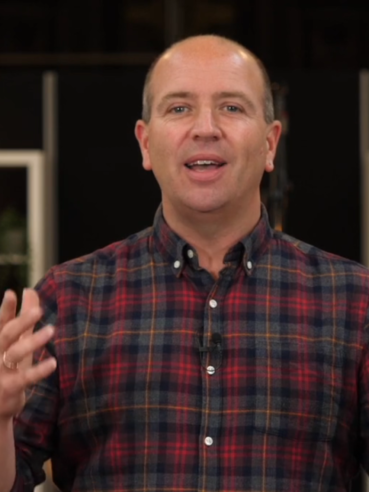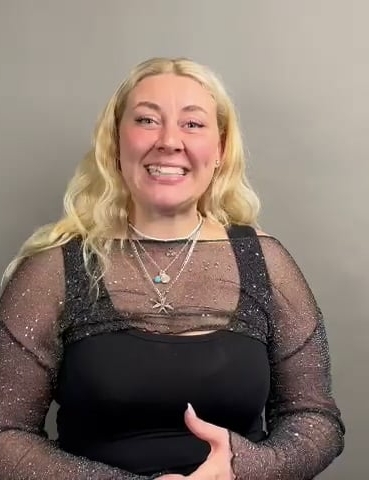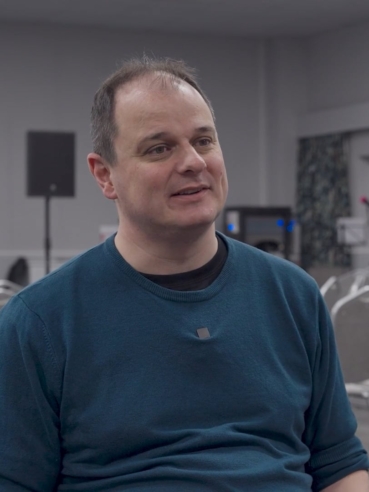Under Capital Vision 2020, the Diocese of London set a goal of creating or renewing 100 new worshipping communities across the capital. At the end of 2020, a total of 87 had been planted, revitalised or started from scratch.
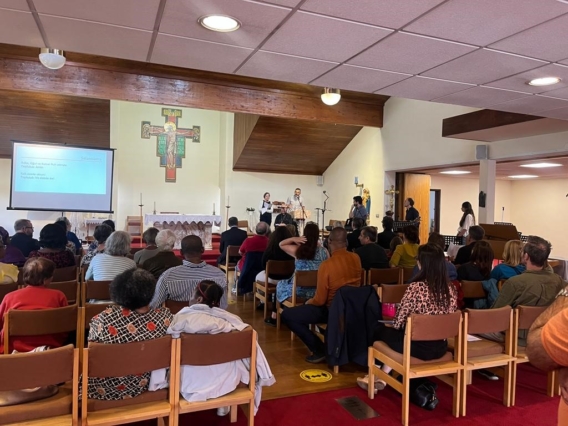
In one of the most linguistically diverse cities in the world, it may come as no surprise that 15 of these 87 newly created or renewed communities were specifically language or multi-language based – worshipping communities grown or planted for those speaking a language other than English.
Here we look at a few of the models that have proved fruitful in reaching out to and building Christian community for the many and diverse language groups in London.
A parish plant for Hindi, Urdu and Punjabi speakers
On Saturday afternoons, Holy Trinity Hounslow (HTH) welcomes people who come together to worship God in Hindi, Urdu and Punjabi.
The congregation was started in 2016 by Pastor Immanual, who had previously planted churches in India. A meeting with Stu Wright, the previous vicar of HTH, led to a conversation about vision and planting.
‘I met Stu outside church as we were doing some outreach there,’ recalls Pastor Immanual. ‘I told him my vision was that I would very much like to reach out to the Asian congregation and he said, “Okay, come and join with us!” The church’s vision statement at the time was “Make disciples of all nations” and that was mine too.’
Pastor Immanual had been the pastor of a Gujarati church in Wembley since 2007. Having seen that church grow, and encouraged by the opportunities in a different area of London, he moved to Hounslow in 2014.
‘At the time, I was just helping as I had another job outside the church as well as being a pastor. Our Hindi-Urdu congregation began in 2016 with very few people, five or six in total, but has now built up between 50 to 60 contacts, with 30-35 people attending regularly and also a few children. Before the pandemic a good number were coming.’
Evangelism on the streets is an important part of the church’s ministry.
‘We’re out on the high street every Friday talking to people and inviting people to come on a Saturday afternoon. And our church service, it’s not a typical service,’ explains Pastor Immanual.
‘When we present people with the Gospel, we need to do that in their own culture. People from India and Pakistan, love to worship in their own language and so our worship is usually around 40 minutes.
‘Then we move to a Bible study or teaching according to the needs of the people who are there. For example, if there is someone new we might do a Bible study or a talk – pure Gospel. We also pray – offering prayer for any problem, and prayer for healing – many people get healed in our services.’
The church is growing and people are bringing others to find faith.
‘If one person comes to faith in Jesus, we can’t keep quiet!’ says Pastor Immanual. ‘When I accepted Jesus as my personal saviour, I never kept quiet. I just went and told the people the transformation I received in Jesus – that won’t allow us to keep quiet.
‘When people experience the love of Jesus, forgiveness of sin and the hope of eternal life, they go and tell their friends. The congregation itself is bringing people into the community all the time.’
A new Turkish-speaking congregation
Engin Yıldırım and his wife have been involved in the leadership of churches for many years in Istanbul, Turkey. On moving to London a few years ago, Engin became the minister for the English-speaking Anglican congregation based at St Michael’s Wood Green in North London.
With a vision to start a congregation meeting the spiritual needs of the large number of Turkish speakers in the area, Engin and his wife started Londra Diriliş Kilisesi in the Easter of 2018.
To help his exploration of church planting, Engin attended the CCX Plant Course.
‘I first came to visit England 23 years ago. For most of my life I’ve been bi-vocational, working in accounting in Turkey, church planting and being a pastor priest in several locations in different churches. I went to theological college in Toronto in Canada and then after graduation, I went through the discernment process with the diocese in Europe. In 2008 I was ordained in Istanbul, and continued to work bi-vocationally until 2017 when I came to Wood Green parish.’
Five years on, Engin continues to be responsible for both the congregations at St Michael’s.
Recalling how the church started, Engin says:
‘I didn’t know many people in London, but there were a few people who we connected with including two women from my church in Istanbul.
‘In the Bible, when Paul went to any place he first went to the synagogues. Like Paul, I went to the people I already knew, seeking out those who were peacekeepers, those who had faith.’
There are roughly 500,000 Turkish-speaking people living in London. Not all are from Turkey; some are Turkish Cypriot, Turkish-speaking Bulgarians and Turkish-speaking Iranians. Likewise they have different stories; some are originally asylum seekers, both Turkish and Kurdish ethnicity also from Iran. Within this population are those who would be described as economic migrants, as well as those who come for education, and formed a home here.
‘One of the challenges we’ve faced is finding our common ground as the culture in the Turkish-speaking world is varied,’ says Engin.
‘For example, there’s a big difference between someone who is third generation from Cyprus living in London, and someone who has just arrived as an asylum seeker. Our experiences and our culture, our geographic, socioeconomic and socio demographics are varied but our common ground is our new identity in Christ.’
Engin remembers that on Easter Sunday in April 2018, 35 people attended the service, including 15 children; fewer than ten of those who came were Christians.
‘That service was God opening my eyes to the needs of the area,’ he says.
‘Despite my plan for the service to last around an hour, people didn’t want to leave and stayed for another three hours! Although no one had asked for food, people brought a meal to share.
‘We had a feast, we talked about faith, about life. My wife led the Sunday School with the children – and we found out that most were attending the church school as it was a place of good education and moral values.’
The meeting became a place of safety, meeting once a month, it was an ‘oasis’ where people had a glimpse of Turkish culture. Over the summer there were Sunday picnics and evangelistic events.
Recognising the different needs of the Turkish-speaking congregation, the church looked to see how they could help those attending. One way identified was to offer support to those needing to improve their spoken English, another to offer parenting support.
‘When people have to be out of the home working long hours, parenting can be a challenge,’ explains Engin. ‘We’ve recently trialled a parenting course developed by Tear Fund, and we may run this again.
‘We’ve also done Alpha – with seven people in the church community baptised, 12 people confirmed and several people waiting to be baptised. So the Lord is already doing something! Easter 2023 was our fifth year and we had 65 people attending the services – 45 were Christians, the rest were visitors.
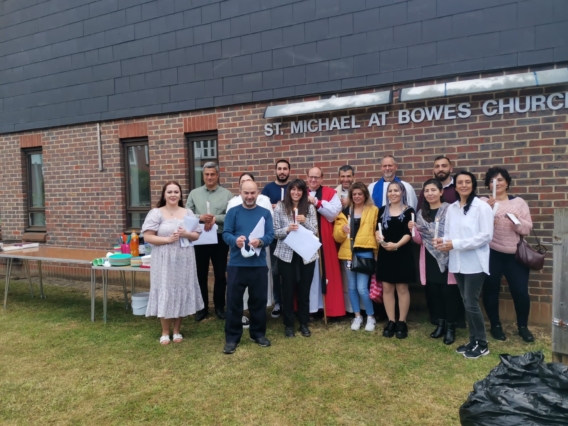
While the Turkish and English congregations maintain their own distinctive identities, there have been some successful joint events in the Wood Green parish – including a wider gathering for the children’s spring fete, attended by over 100 mostly Turkish people, and for the Harvest Festival. The communities have a lot in common in their mission and shared bi-lingual events in Lent. There is also a monthly healing service in Turkish and English.
Pastoral needs have also emerged within the community, with many affected by the recent earthquake in Turkey.
‘We held a vigil in the early days where people could come to weep and pray and find support,’ says Engin. ‘This led to an appeal for Turkey and a large sum was raised and sent to a Christian charity working in the area. We continue to pray and remember those affected and help in practical ways where we can. We know that about 15 million people have been displaced.’
As a leader who has started something new, Engin acknowledges that for himself and others like him, this sometimes comes with a sense of inadequacy:
‘Some things work, and some don’t and you think “maybe I’m missing something?” I think it’s really important that we encourage each other to connect with each other so we can learn from best practice whatever that is and apply it to whichever language community we’re working in.’
A diocesan-wide service for Persian speakers
The Persian Anglican Community of London (PACL) was planted by Revd Jonathan Aptin Samadi in 2019. It began with a vision of offering support for all Farsi speakers in the Diocese of London by gathering for monthly worship services in their own native language and helping them to integrate into their communities and parishes. The PACL now also offers support and advice to those parishes with a vision to serve their local Persian community effectively, offering discipleship courses and training for potential leaders.
‘I knew there were a very high number of immigrants from Iran, Iraq and Afghanistan speaking Farsi,’ says Jonathan.
‘Listening to the experience of others, to my own experience, and of others visiting Church of England churches in the UK, drew me to the conclusion that there was a need for a special ministry and support. The Persian culture is warm and welcoming and people expect church to be a place where they experience God’s love shown in the same warmth through relationships with others and a welcoming environment.
‘In some cases people from these countries coming to churches here found the natural British reservedness very different from the communities where they had come from and the format of churches more ‘official/formal’.
‘So the challenge we took up was to make them feel welcome, to support them on their journey of discipleship and faith and knowing God’s love for themselves while also settling down in the local community. In addition, we also wanted to help support parish churches to offer a more effective service to Persian-speaking people.’
After some time of reflection, Jonathan felt that planting a community that was separate from the local church was not ideal, as it didn’t help people settle or integrate into the local church community.
The emphasis moved towards giving people an opportunity to worship God in their own language – gathering once a month, while also encouraging Persian speakers to actively engage with the local parish communities.
‘Now we have five to six different parishes in our network – some in the west, some in the north of London – worshipping in their own languages.
‘We create for them a safe place for fellowship and friendship – many may feel lonely, isolated and homesick. They may have left their homes and culture behind them so they need a community to love them, accept them and allow them to be themselves.’
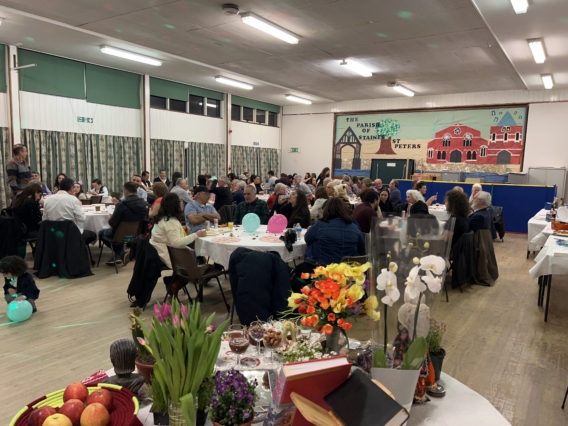
In 2021 the PACL was recognised as a diocesan BMO, a ministry across the boundaries of parishes in the Diocese of London.
‘We’re allowed to operate beyond parish boundaries but we have agreement with local parishes,’ explains Jonathan.
‘The gatherings offer fellowship with each other as well as with God. People make good friends and where help is needed there is an opportunity for mutual support. But we’ve realised how important it is that we encourage people to go to their local parish church and see how they can serve there too.’
Each of these is an example of reaching new people in new ways. To find out more about church multiplication and how CCX can support you, contact our relationship manager Katie Lysak: katie.lysak@ccx.org.uk

